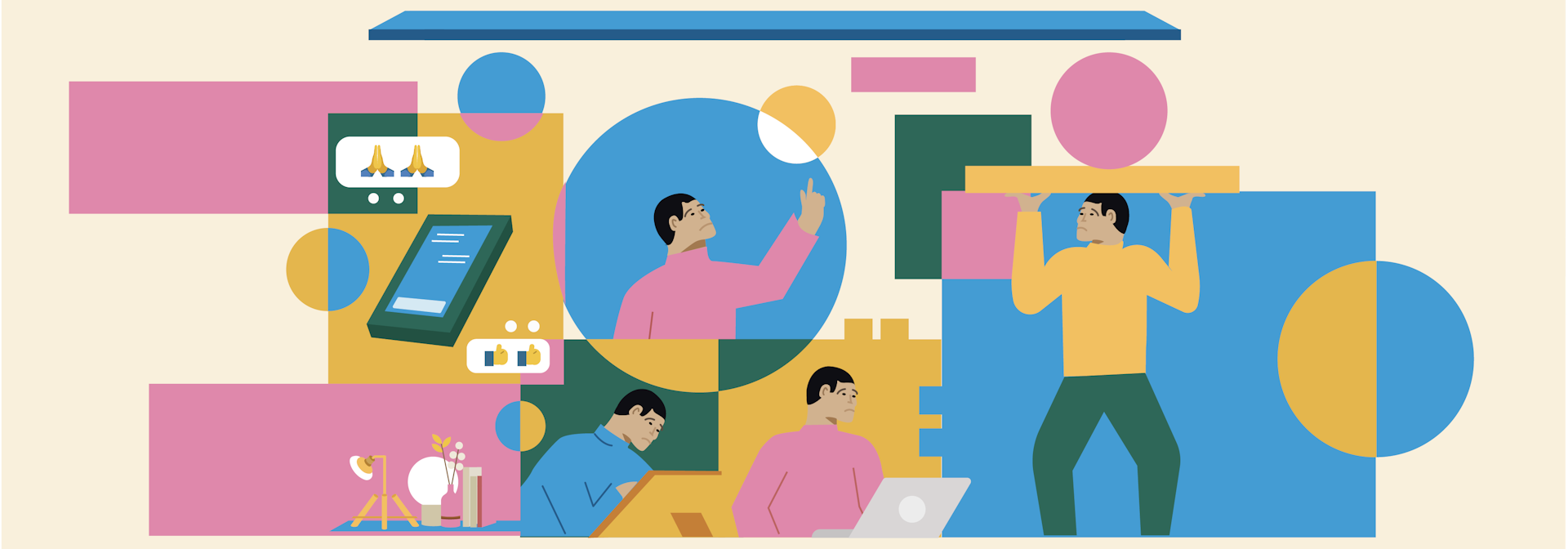4 ways being a ‘super-helper’ could be harming you
updated on Jan 17, 2023

Are you always putting others’ needs before your own, to the point where you have no time for yourself? You could be a ‘super-helper’, and it might be doing you more harm than good…
Some of us are better at helping others than we are at looking after ourselves. Maybe this sounds familiar to you personally, or perhaps it conjures up an image of someone you know. These are the ones who are susceptible to the ‘super-helper syndrome’ – where people feel compelled to help others, but don’t look after their own needs.
And super-helpers are all around us. Most obviously you will find them in the caring professions, giving strength to our schools, clinics, care homes, and hospitals. But they are also in offices, gyms, community groups, and charities. Helping whenever and wherever they can, either at work or in their own time. They are the problem-solvers, the mediators, and the fixers, who can’t resist any opportunity to help.
But, as kind as it is to want to support others, the old adage ‘you can’t pour from an empty cup’ is well-known for a good reason. It’s important to spot the signs of being a super-helper early, so you can take action before you reach a state of collapse. Here, we’re sharing the four most common adverse consequences.
Exhaustion
Many helpers run on empty and take this for granted. Are you tired all the time? Do you have no time for yourself? Is your sleep disturbed? Do you suffer from muscle tension or headaches? Do you feel irritable, tetchy or just weighed down?
Resentment
Are you stretched out like an elastic band that’s eventually going to snap? It’s easy to say you don’t want anything in return for helping, but the reality is it’s hard to keep going indefinitely if you get little reward. At the very least, you deserve thanks and recognition. Do you find yourself ruminating on how much you do for others?
Exploitation
If you never express any needs, then it’s easy (and convenient, too) for other people to act as if you don’t have any, to take advantage of your help. If you give the impression you want nothing in return, you’ll often get nothing in return. That’s why it’s important to take a hard look at whether some of the people you are helping are exploiting you. Do they really need help at all? Do they need your help?
Self-criticism
It’s ironic that those who are so good at looking after others are often less kind to themselves. Helpers’ self-criticism typically operates on two levels. Do you criticise yourself for not helping enough (helper’s guilt)? Do you criticise yourself for experiencing the other three adverse impacts of the ‘super-helper syndrome’ – for feeling exhausted, resentful, or exploited?
If you are at the point where you are finding it difficult to look after your own needs, take a step back. Like everyone else, there are times when you need comfort, rest, reassurance, sustenance, or time to yourself. And if you don’t express your needs, how can anyone else know how to take care of you when you are struggling?
1. You help in all aspects of your life – your job, family, friends, volunteering, colleagues, clients, neighbours… An endless list.
2. You are the one that everyone turns to, the first port of call when they are in distress.
3. You struggle to say no to requests for help.
4. People open up to you, even when you’ve just met them.
5. You ask lots of questions, but notice that other people don’t show as much interest in what’s going on in your life.
6. Your relationships lack balance – you help people, but they seldom help you. You make all the effort (remembering birthdays, keeping in touch, sending well-wishes for that job interview, etc.).
7. You get swept up in other people’s drama. You’re constantly offering advice or trying to fix their situation.
8. You feel guilty if unable to help.
9. You put everyone else’s needs above your own.
10. You deny you have any needs of your own, using excuses like ‘I’m fine, you carry on.’
11. If someone asked you, you’d struggle to say what you need. If pressed, everything you could think of would really be about meeting other’s needs.
12. You turn to false needs.
13. You feel guilty for looking after yourself.
Jess Baker and Rod Vincent are chartered psychologists and the authors of ‘The Super-Helper Syndrome: A Survival Guide for Compassionate People’ (Flint Books, hardback, £18.99).

